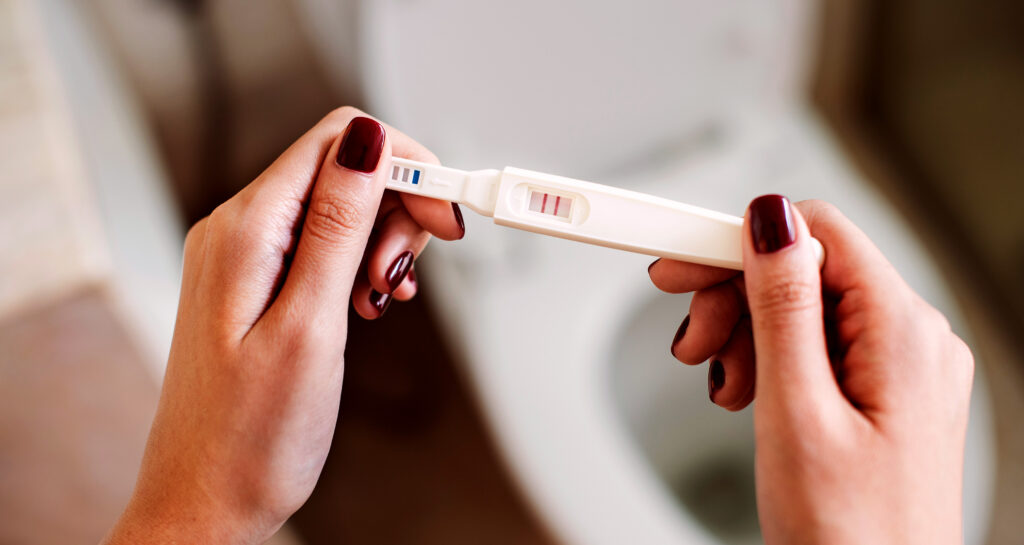The pill that kills (3 lies we’ve been sold about the Pill)
Published on March 5, 2025

Oral contraceptives (BCPs) are marketed as a way for women to gain control—over their bodies, emotions, and fertility. However, the reality of taking the pill is far different from the promises made. As more research emerges on its effects, it’s becoming clear that these promises are misleading. Here are three common myths about the pill—and what’s really happening.

Myth #1: The Pill gives you control over your body
For many women, the promise of less painful periods is a major incentive to take the pill. Period cramps can be debilitating, and the idea of eliminating them sounds appealing. Organizations like Planned Parenthood promote the pill as a way to regulate and reduce pain. However, they rarely discuss the wider impact hormonal contraception has on a woman’s body.
The pill artificially alters a woman’s natural cycle by suppressing ovulation and changing hormone levels. This process disrupts the body’s finely tuned hormonal system, which naturally shifts throughout the month to prepare for possible pregnancy. While this suppression may prevent pregnancy, it also affects overall health in profound ways.
Health risks you should know
- Increased risk of blood clots & stroke – The pill has been linked to a higher risk of life-threatening blood clots, particularly in smokers and women over 35.
- Breast cancer risk – Some studies suggest that long-term use of oral contraceptives may slightly increase the risk of breast cancer.
- Group 1 carcinogen – The World Health Organization (WHO) classifies synthetic estrogen and progesterone in oral contraceptives as Group 1 carcinogens—the same category as asbestos and tobacco.
Instead of giving women more control, the pill takes control away by overriding the body’s natural regulatory systems.

Myth #2: The Pill stabilizes your emotions
Another common belief is that hormonal birth control helps regulate mood swings. Many women take the pill expecting emotional stability, but research suggests that it can have the opposite effect.
One major concern is its impact on cortisol, the body’s stress hormone. Women on the pill often have lower cortisol levels, which hinders their ability to handle stress. Without proper cortisol regulation, women may experience intensified emotional reactions, anxiety, and even depression.
How the pill alters mood & attraction
- Increased risk of depression – Studies have found that women who take the pill are more likely to be diagnosed with depression or prescribed antidepressants.
- Changes in romantic preferences – The pill alters hormone levels, which can shift attraction patterns. Women on the pill may prefer more “feminine” men and find themselves less drawn to partners they previously found attractive.
Rather than providing control over emotions, the pill can lead to mood instability, higher stress sensitivity, and unexpected changes in attraction.

Myth #3: The Pill guarantees pregnancy prevention
The primary reason most women take the pill is to prevent pregnancy. However, while oral contraceptives are marketed as being highly effective, they do not eliminate the risk of unintended pregnancy.
The reality of birth control failure
- Annual unplanned pregnancies – Among the 11 million U.S. women on the pill, approximately 1 million still become pregnant each year.
- Abortion link – Studies suggest that 40% of women who become pregnant while on the pill choose abortion.
Reduced libido – Many women experience a lower sex drive while on the pill, which directly contradicts the goal of maintaining an active sex life without pregnancy concerns.
If the goal of using birth control is to enjoy intimacy without the risk of pregnancy, yet the pill both lowers libido and fails to prevent pregnancy reliably, it raises an important question: Is it truly delivering on its promises?
Still curious? Check out this video by Ascension Press:




Excellent summary. The pill also acts as an abortifacient. One way it acts is to make the inside lining of the uterus hostile to implantation of a fertilized new baby. This means that if the egg becomes fertilized its normal ability to “stick” to the inside of the uterus and start obtaining nutrients and blood supply is affected. Instead the lining does not allow the new baby to “stick” or implant thus the baby dies. Doctors do not tell women this as well.
It is estimated that 250 million babies are aborted this way.
The sad thing is that the medical providers do not give informed consent regarding this drug and its actions and therefore the patient most times is not even aware that it is an abortifacient. For anyone who is prolife and has used these products and it unaware that knowledge can be devastating that they were deceived in this manner. And for the current providers and system it removes the ability of the woman to make informed decisions for her own health based on her beliefs. That is a horrible part of medicine. Lack of informed consent in this manner
Someone I know was on the pill for years. Her periods began getting further and further apart until they stopped. Her gynecologist told her she was in menopause. (This was verified by testing.) She was only in her 30’s!!! It was emotionally traumatic for her .After almost a year off the pill, her period returned. The doctor declared she was no longer in menopause and said she had never seen anything like it before.
How could doctors not know this?